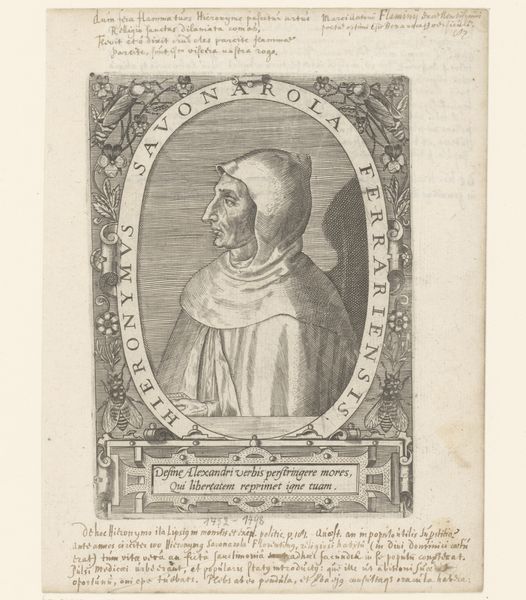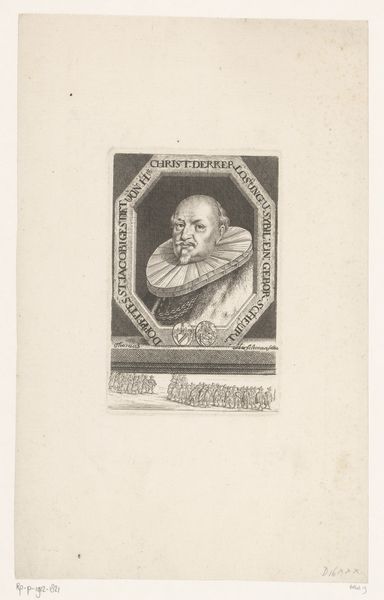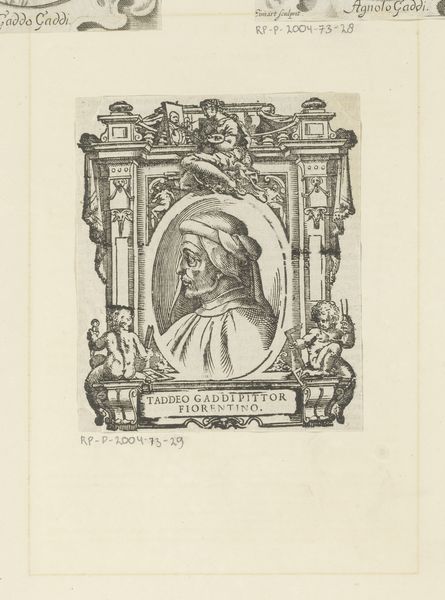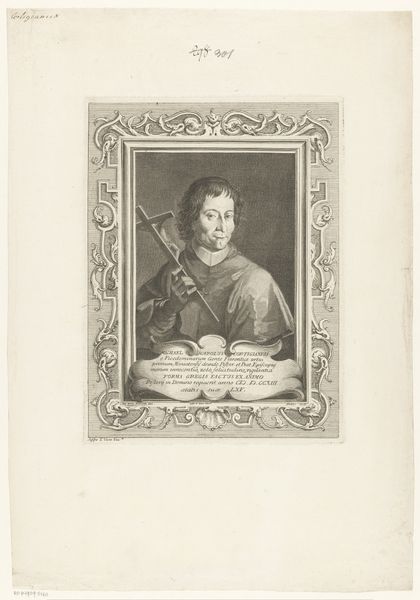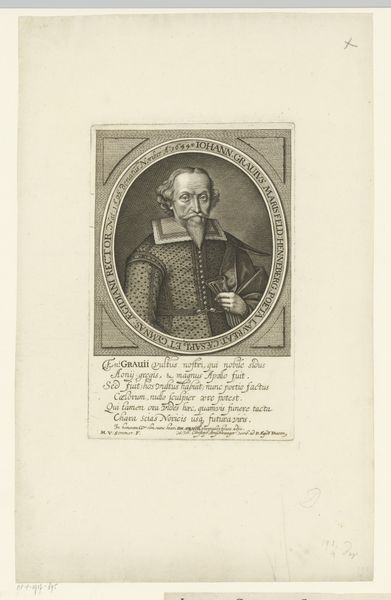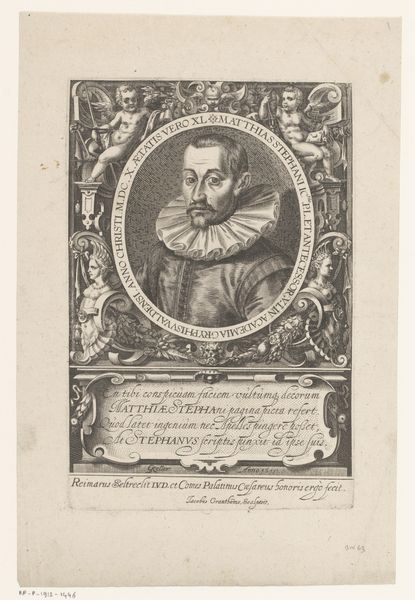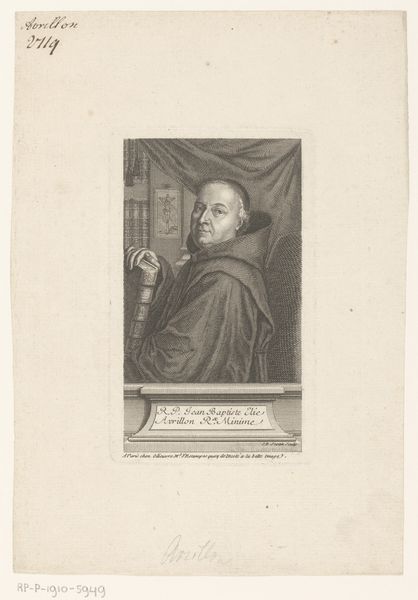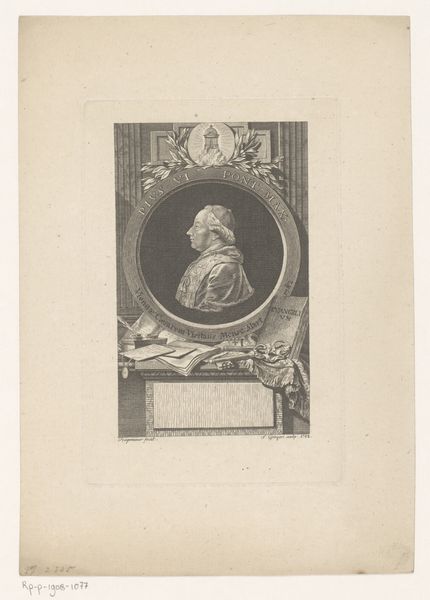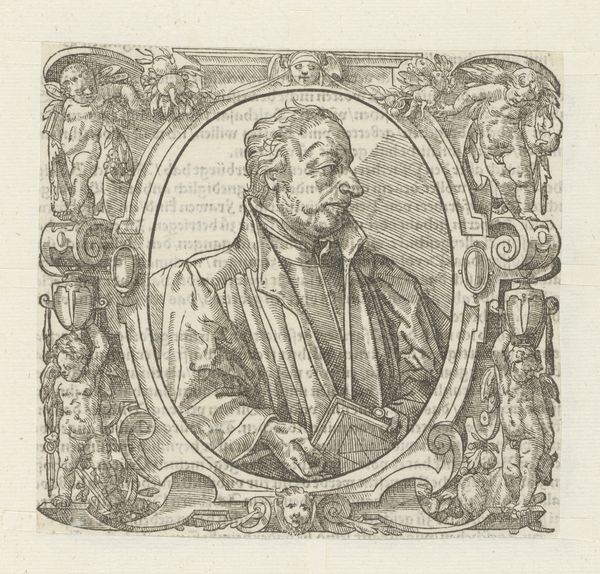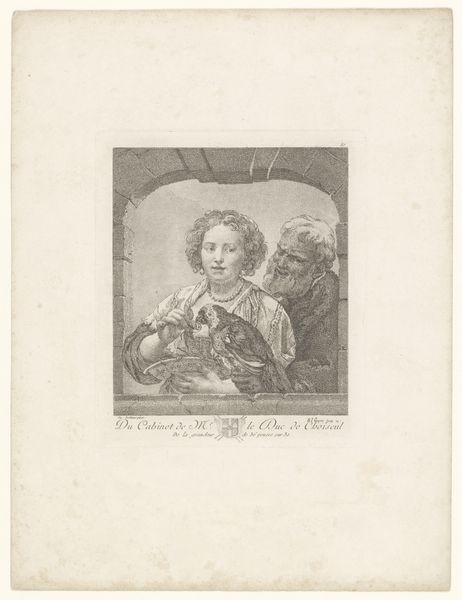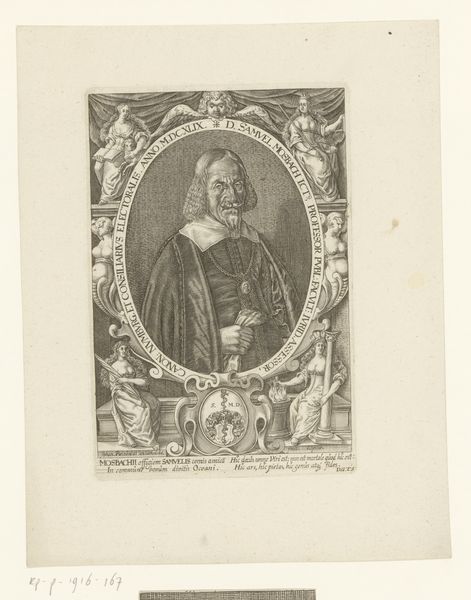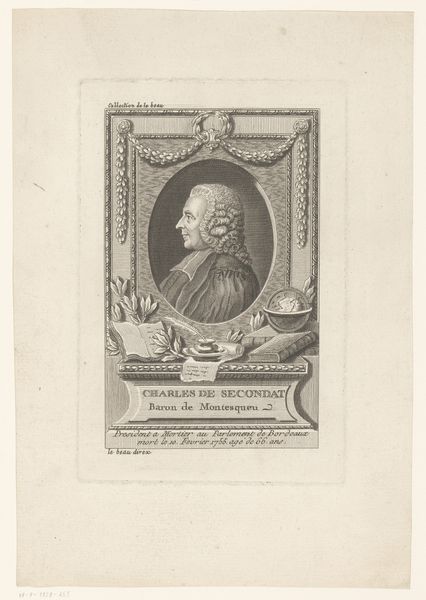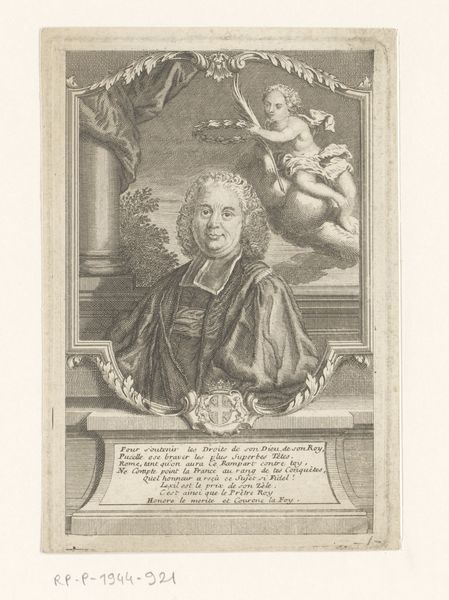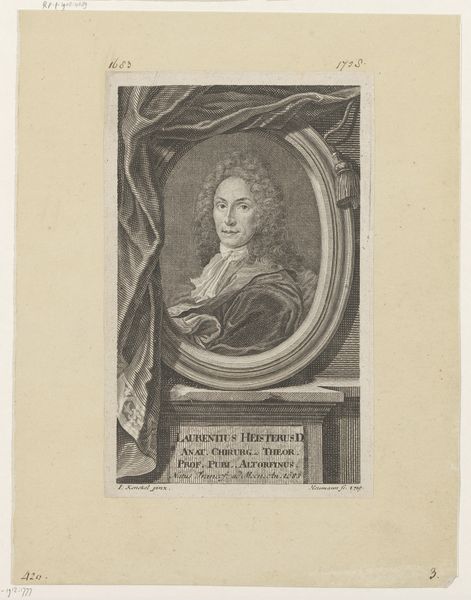
print, intaglio, engraving
#
portrait
#
baroque
# print
#
intaglio
#
engraving
Dimensions: height 162 mm, width 123 mm
Copyright: Rijks Museum: Open Domain
Curator: This is an engraving, an intaglio print, crafted between 1707 and 1709 by Jean Langlois, and it depicts Jerónimo Benete. What catches your eye first? Editor: The cherubs! They're so plump and busy, each with their little symbolic object, almost comically juxtaposed against the somber portrait. It's Baroque but feels strangely… playtul? Curator: Precisely! Notice the ovoid frame, adorned with not only cherubs, but also what appear to be sphinx-like figures. This, along with the inscription plaque below, establishes a hierarchy of symbolic forms. Langlois meticulously balances religious and classical motifs. Editor: That little chalice he's holding... almost looks like he’s toasting someone, a mischievous twinkle in his eye despite the stern context. I like the human touch amidst all the formality. The texture rendered is wonderful, looks soft despite being ink. Curator: Observe the linear precision, especially in the rendering of Benete's face. Langlois masterfully uses cross-hatching to define the contours and shadows, creating depth in a medium that is, by nature, flat. Note the allegorical elements, referencing virtues like charity through symbolic objects. Editor: I keep coming back to the almost-whimsical cherubs, it undercuts the seriousness one expects from a baroque portrait commemorating the death of a man of charity. Maybe the point is life amidst the context of death? Curator: It could be interpreted that way. Langlois likely intended to elevate Benete, emphasizing piety while hinting at earthly delights through these baroque stylistic conventions. Editor: Ultimately, it's that tension, that duality of seriousness and levity, which keeps it from being just another staid portrait, and offers something interesting, a bit off-kilter to mull over. Curator: A perfect articulation. Thank you.
Comments
No comments
Be the first to comment and join the conversation on the ultimate creative platform.
